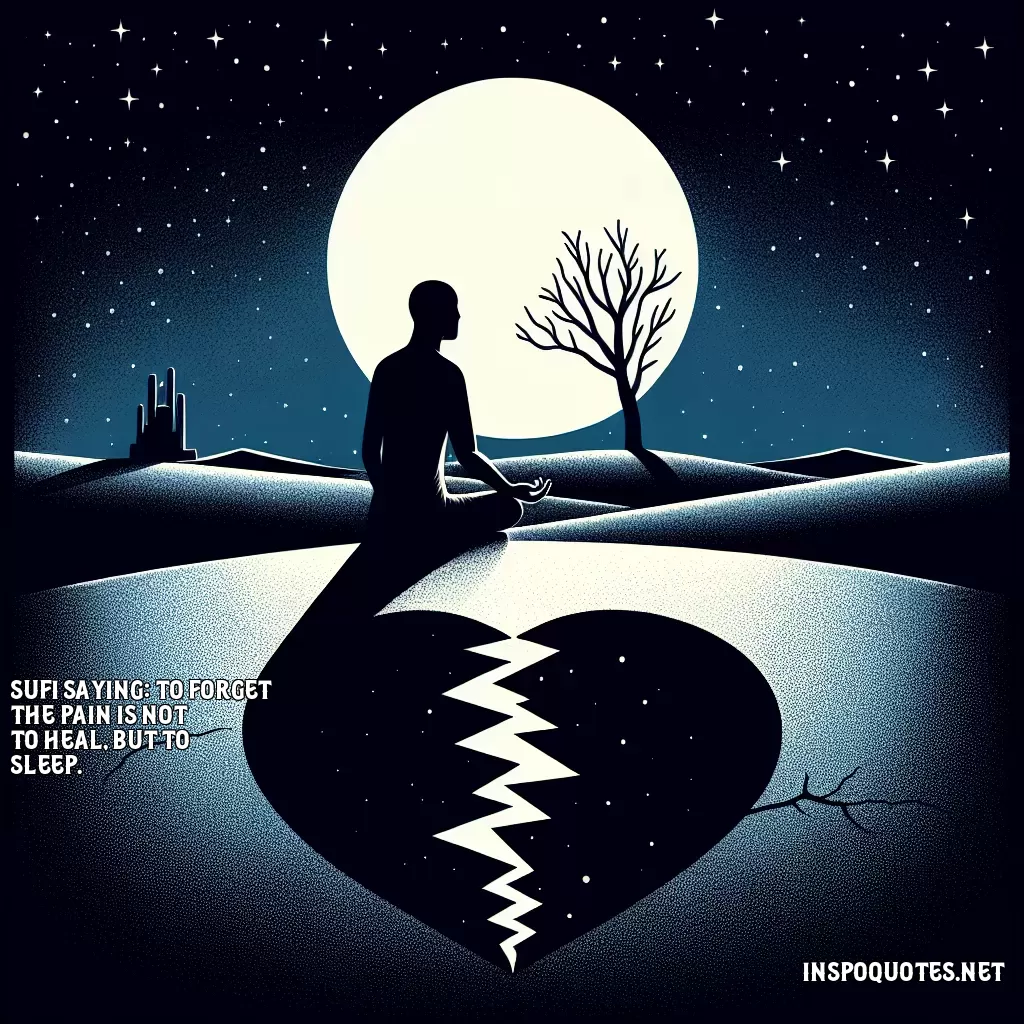
Sufi Saying: To forget the pain is not to heal, but to sleep.
Author: Rumi
👁️ 4 views
This Sufi saying, "To forget the pain is not to heal, but to sleep," suggests a profound understanding of the process of healing and the importance of addressing one's pain. In essence, it means that simply ignoring or forgetting about one's pain does not lead to genuine healing. Instead, such an approach is likened to sleep, which is a temporary state of inaction or avoidance. Healing, in the context of this saying, involves actively engaging with and processing the pain. It requires conscious acknowledgment and understanding of the pain rather than burying or dismissing it. When we choose to merely forget, we are not confronting the root causes of our suffering or learning the lessons that pain can often teach us. This avoidance can lead to unresolved issues that linger beneath the surface, resurfacing later, and potentially manifesting in other areas of one's life. Moreover, "to sleep" here implies a state of rest or dormancy, where true growth or resolution hasn't occurred. Just as problems cannot be solved by escaping into sleep, emotional or psychological wounds cannot be healed by simply putting them out of mind. True healing, therefore, involves mindful engagement with one’s pain, working through it with awareness, understanding, and compassion, ultimately leading to personal growth and deeper self-awareness. This approach to healing aligns with many principles of Sufism, which emphasize inner reflection and the transformative power of experiencing one's emotions fully.
Quote By: Rumi
Jalal ad-Din Muhammad Rumi, commonly known as Rumi, was a 13th-century Persian poet, Islamic scholar, and Sufi mystic born on September 30, 1207, in present-day Afghanistan. He is best known for his profound spiritual poetry, particularly his work "Masnavi," which explores themes of love, divine connection, and the human experience. Rumi's teachings continue to resonate universally, making him one of the most celebrated poets in history.
Bio added on: 2025-02-17 19:52:10